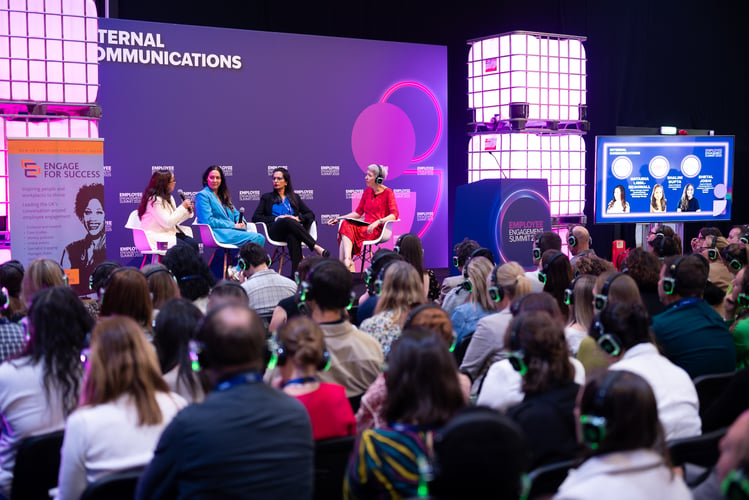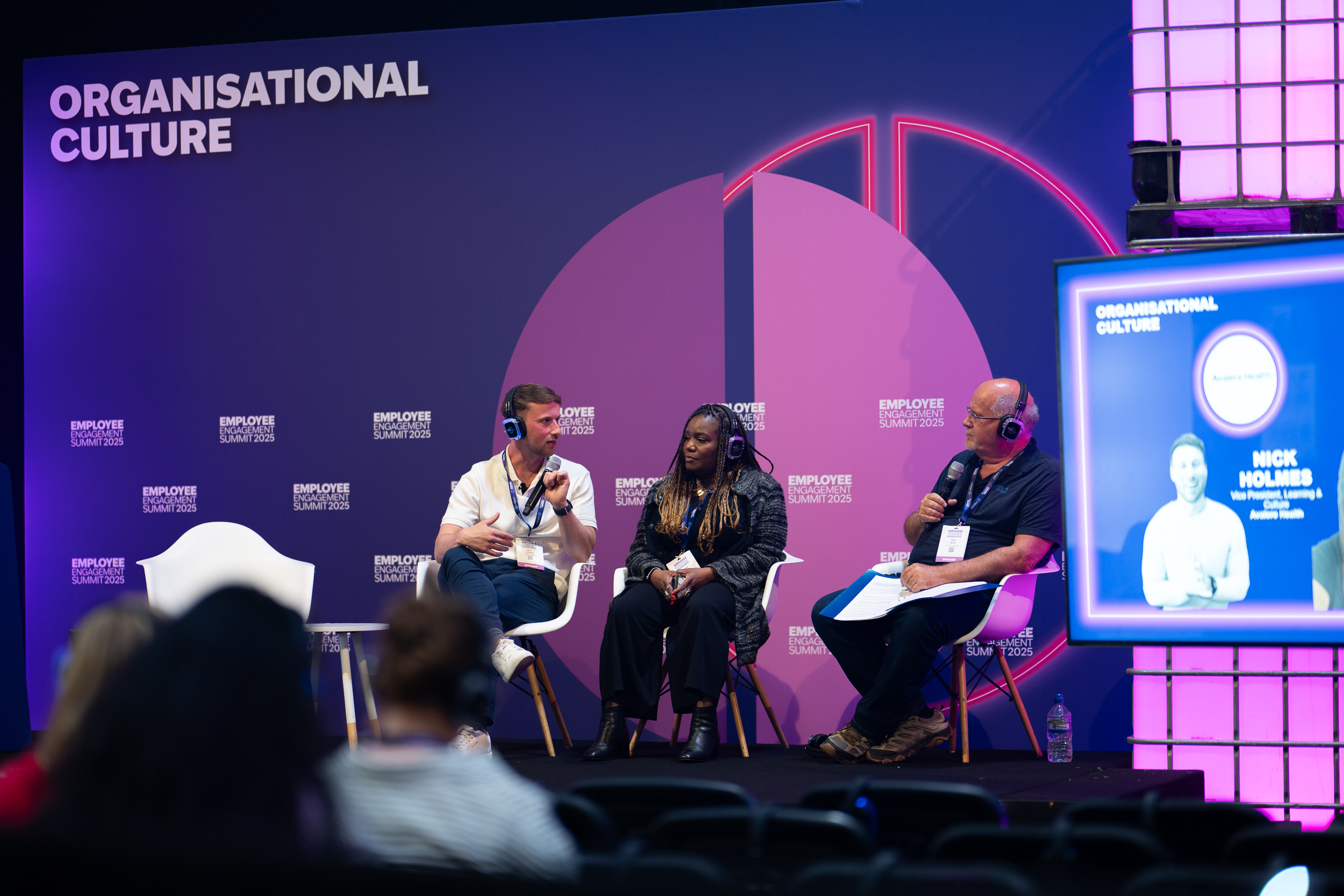10 Minutes With Natasha Liedl-McDowall, Senior Manager Internal Communications at London Stock Exchange

Can you tell us a bit about yourself and what you do?
I work at the London Stock Exchange Group (LSEG) in the internal communications team and I love what I do because I believe in a corporate world where people feel inspired to come to work and safe to speak up. I also really enjoy LSEG because of the interesting work we do in the data and analytics space and the people we have here are fun, smart and fascinating.
Looking at my diary this week to answer the second part, my role on a day-to-day basis involves conversations with various leadership teams where I’m recommending an approach to a problem or looking for opportunities that they don’t see in order to increase productivity, alignment or engagement.
This week I’ve also been sourcing people stories to raise awareness of the importance of risk mindset and acting with integrity to boost our reputation with customers so I’ve been filming people and editing them too. So it’s the full spectrum of work: Strategy, advice, plan, delivery.
What first got you interested in employee engagement?
I first learnt about internal comms when I was looking to move away from PR agency life. My previous agency manager hired me into my first ever role in-house: An internal comms and sustainability role. I really enjoyed it because I saw for myself how the events and the plans I was delivering, made people feel recognised, seen and appreciated which made me happy and feel good. The rest is history.
I believe all voices matter, that people matter, and we all have unique power, skills and contributions that should be harnessed in the workplace since most of our time is spent at work. The fact that I can influence this cause through the career I’ve chosen, and that also plays to my strengths, means internal comms is my interest.
I wish for everyone to live their life with as much joy and impact as possible given the finite time we live on this planet! My motto for 2025 is ‘positive impact’ so that’s the theme I’m trying to live by with everything I’m choosing to allocate my time and energy to.
Your session at the summit focused on Shaping Organisational Culture Through Meaningful Communication. Why was that topic important for you to explore this year?
There are so many metrics that show culture is the main reason employees love working with a company/ are attracted to a company and advocate for a company. This makes culture a fascinating topic as it’s everything that makes people great, and in turn the company great.
People pro-actively choose good cultures to work for, customers love a company when its employees love it first. Founders of companies call themselves ‘chief recruitment officers.’ The issue with being in the culture space is there are no definitive metrics that directly correlate culture to profit however the science on team performance shows when people have genuine community (feel a sense of belonging), clear purpose, and physical/mental wellbeing, their brains function better, they perform closer to their potential and they love their job more.
Communication creates the company story. It gets everyone understanding, positively advocating and talking about it internally and externally, and so in conjunction with other functions, we help to create the conditions that science proves generates exceptional work.
So I’m privileged to have found a profession I love that contributes to this important topic.
What’s one key takeaway you hope attendees walked away with?
That any individual can impact company culture by acting and behaving in accordance to the company’s values. That means each person has a sphere of influence even if you don’t think you do – you don’t have to be a senior leader/executive/have a team to control your own mindset and behaviour.
People are always watching, observing and mimicking others: Speak up when something doesn’t feel right, take any small action to make something better. Culture is everybody’s responsibility (as cheesy as that sounds, it really is!)
Can you share an example of something that’s worked well in your experience to boost engagement?
• Informal communication channels boost engagement: People want authenticity and to feel heard and understood.
• Give more power to the people through channels that allow people to be themselves.
The more you can provide these opportunities for open dialogue that feel authentic and transparent, the more people engage with the content and have confidence that the company strategy is working.
I’m a huge fan of internal social media: Not only can it become a mechanism to reduce email volume and ‘broadcast’ comms, but can provide people with the platform to express themselves constructively, and give people access to their leaders globally to break silos and hierarchy. This creates innovation, faster decision making and therefore a competitive edge along with a reduction in serious compromises to company reputation.
What’s a common mistake you see organisations make when it comes to engagement?
Telling people about news or changes through one long message. Communications pros show their value when we advise on approaches to boost engagement. Businesses often ask to send an email to tell people something or host a Town Hall to tell people something. But this strategy deters people more. We have to recommend bringing real people into global calls to allow them to tell their stories so that others resonate with that case study and see themselves in it, we have to recommend speaking to people when a change needs to happen and offer plenty of opportunity for no agenda ‘ask me anything’ sessions.
What trends are you watching when it comes to the future of employee engagement?
• Enabling people to help their own communication through the use of AI while not losing authenticity.
In the days where emails can appear perfect and generic via a tool, it’s never been more important to be yourself so we don’t lose human connection in our own perfectly flawed ways.
• The focus on more community driven content and platforms.
Employee networks are so popular because people optionally come together with a common cause and identity and they feel they belong there. Community driven strategies are turning the dial, companies are hiring ‘Chief Community Officers.’
Finally, what’s one book, podcast, or resource you always recommend to others in tHIS SPACE?
Simon Sinek is my ultimate favourite. His books are all brilliant but especially ‘Start With Why.’ He’s got lots of content on socials too.
If you enjoyed this article, you can register your interest in attending the 2026 Employee Engagement Summit for free to explore the latest trends, innovative strategies and cutting-edge technologies driving exceptional engagement and results in today’s landscape.





